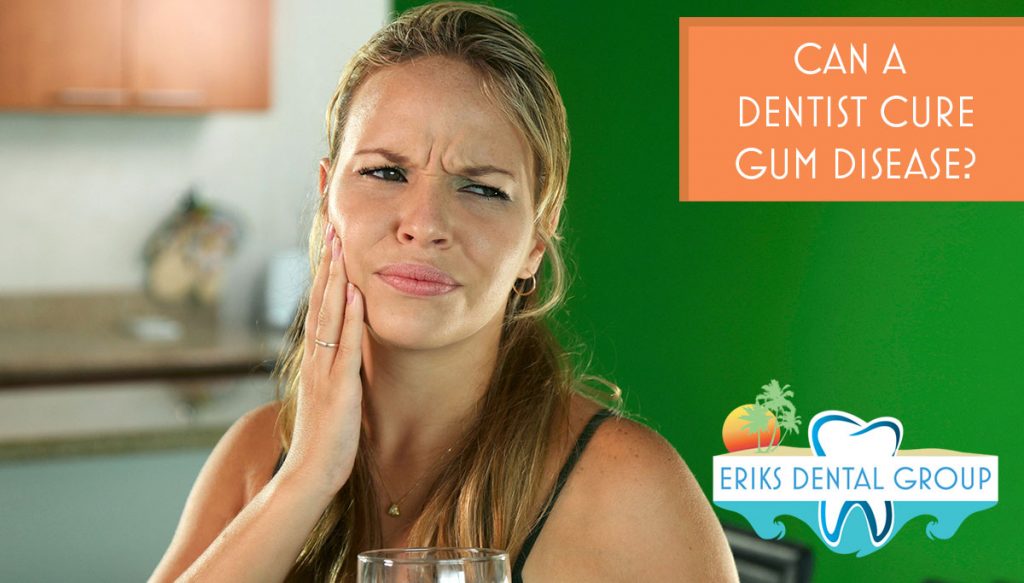Gum disease is a common oral ailment that affects people who don’t have the best oral hygiene. About 46% of adults from the age of 30 years and older show some common signs of gum disease. Severe gum disease affects about 9% of adults. While gum disease treatment is effective, the condition is not to be taken lightly since it can lead to further complications later in life.
What Is Gum Disease?
When you allow plaque to build on your teeth and harden into tartar, the tissue holding all your teeth in place becomes infected and inflamed. This is commonly known as gum disease, gingivitis, or periodontal disease.
There are two main types of gum disease: periodontitis and gingivitis. Gingivitis is the less severe type of gum disease, in which bacteria irritate your gums, causing swelling and bleeding. If left untreated, it develops into periodontitis, which is the more severe of the two.
The Main Causes Of Gum Disease
The following conditions can damage your overall gum health:
Plaque Buildup
When you have plaque buildup that isn’t removed in time, it hardens and creates tartar. Tartar can only be removed by a dentist. Be sure to add flossing to your daily oral health routine.
Certain Medicines
Some medicines can change the environment of your mouth. Diminished saliva flow and dry mouth can both negatively impact your gums and teeth. Medications like those used to treat convulsions may cause abnormal gum growth.
Changes In Hormones
Certain hormonal changes such as pregnancy, menstruation, puberty, and menopause affect your gum sensitivity. These can make you more prone to gingivitis.
Immune Compromising Illnesses
Certain illnesses such as HIV, cancer, and diabetes can affect your immune system. Periodontitis and gingivitis can occur as side effects of these types of illnesses.
Smoking
Smoking is one of the largest culprits of gum disease. It affects the body’s ability to repair any damaged gum tissues.
Lack Of Oral Hygiene
Incorrect oral hygiene is one of the leading causes of gum disease. Proper oral care, such as flossing and brushing, can be time-consuming and perhaps the last thing you feel like doing. But flossing and brushing twice every day is the best method of protection for your gums.
What Are The Symptoms Of Gum Disease?
Depending on the type and stage of gum disease you have, the symptoms can vary from individual to individual. The most common symptoms include:
- Persistent bad breath.
- Swollen or red gums.
- Loose teeth.
- Painful chewing.
- Bleeding or tender gums.
- Sensitive teeth.
- Longer-looking teeth or receding gums.
- Losing teeth.
Gum Disease Treatments
The types of gum disease treatments will depend on the severity and extent of the gum disease.
For the first few stages of gum disease, a good dental clean is used to treat patients. This is to help stop the advancement of the disease.
Two non-surgical options are root scaling and planing. These are often used together. Scaling involves using special tools to clean your gums and remove bacteria from your tooth roots. Once the roots are clean, root planing can take place. Planing smooths the surface of the root, making it difficult for the bacteria to grow. It also provides the perfect place for your gums to reattach while they heal.
Dentists can perform pocket reduction to help remove bacteria from your tooth roots using small incisions. When they close the incisions, your gums will be placed snugly against your teeth. This reduces the size of the pockets between your teeth and gums.
Sometimes abscesses can form on your gums. This is corrected by performing a periodontal abscess treatment. Once drained, the area is then cleaned well. Antibiotics may be prescribed to keep infection at bay.
In severe cases, gum and bone grafts may need to be performed. A gum graft will be taken from you or a donor and placed in the affected area. Bone grafts use a donor or synthetic bone to help encourage your jawbone to grow back. A bone graft is sometimes a necessary step to receiving dental implants.
Gum Disease Treatment And More In South Florida
If you suspect you have gum disease, don’t leave it until the last minute. Eriks Dental Group is one of south Florida’s most reputable dentists. Call our dentistry experts at 561-733-4004 to schedule an appointment.

